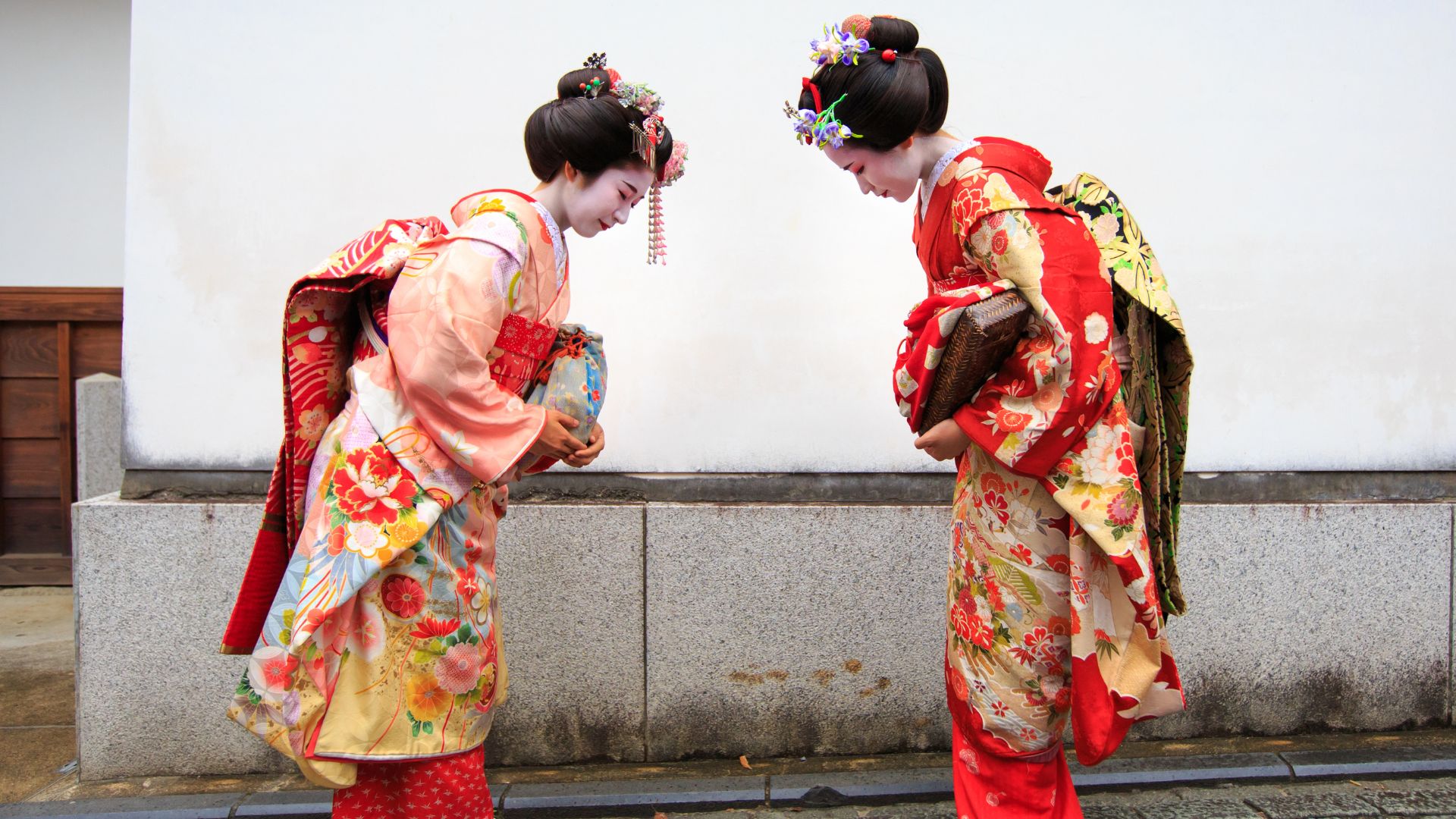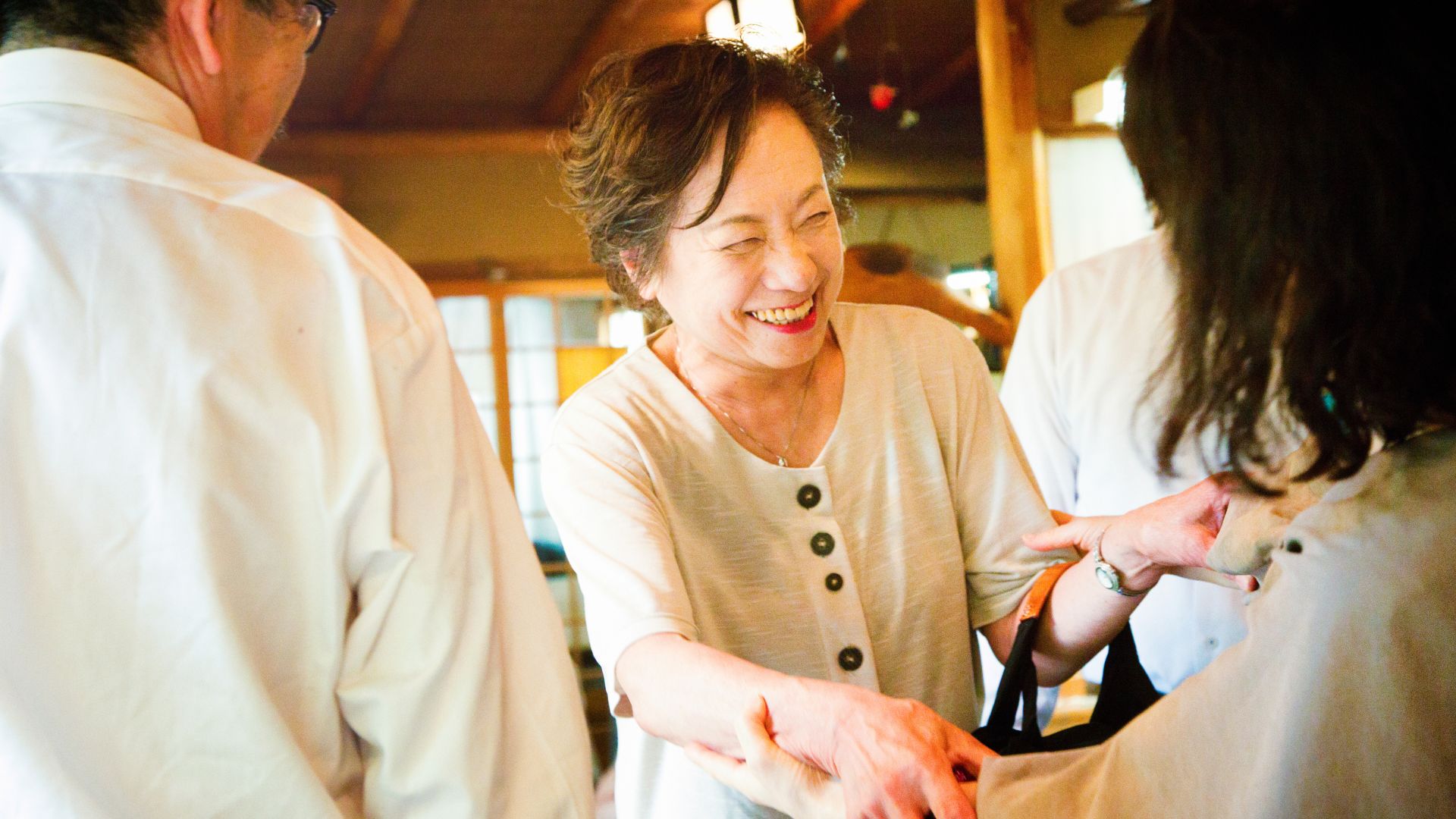In Japanese culture, how you speak is very important, especially when you say ‘Thank you’ and ‘You’re welcome.’ There are 35 ways to express these phrases, each fitting a specific social situation and showing varying respect, humility, or sincerity.
Learning these phrases is more than just boosting your language skills; it’s about improving how you connect with others in Japan. These expressions are deeply tied to the country’s cultural values and social rules. Understanding them can give you practical language skills and a deeper insight into Japanese society.
35 Ways to Say “Thank You” in Japanese

| Japanese | Romaji | English Translation |
| ありがとう | Arigatou | Thank you |
| ありがとうございます | Arigatou gozaimasu | Thank you (polite) |
| どうも | Doumo | Thanks |
| どうもありがとう | Doumo arigatou | Thank you very much |
| 感謝します | Kansha shimasu | I’m grateful |
| ありがたい | Arigatai | I’m thankful |
| 助かります | Tasukari masu | You’re a great help |
| 恐れ入ります | Osore irimasu | I’m indebted to you |
| 御礼申し上げます | Orei moushiage masu | I express my gratitude (formal) |
| 感謝しています | Kansha shite imasu | I’m thankful |
| サンキュー | Sankyuu | Thank you (casual, from English) |
| ありがとうね | Arigatou ne | Thanks, you know |
| 助かりました | Tasukari mashita | You’ve been a great help |
| 嬉しいです | Ureshii desu | I’m happy (implying thanks) |
| 感謝の気持ちでいっぱいです | Kansha no kimochi de ippai desu | I’m filled with gratitude |
| 本当にありがとう | Hontou ni arigatou | Thank you so much |
| 心から感謝します | Kokoro kara kansha shimasu | I thank you from my heart |
| 感謝の言葉もありません | Kansha no kotoba mo arimasen | I have no words to express my gratitude |
Ways to Say “You’re Welcome” in Japanese

| Japanese | Romaji | English Translation |
| どういたしまして | Douitashimashite | You’re welcome |
| いいえ | Iie | No (implying “it’s nothing”) |
| とんでもない | Tondemonai | Not at all |
| 気にしないで | Ki ni shinaide | Don’t worry about it |
| お安いご用です | Oyasui goyou desu | It’s a small matter |
| いいんですよ | Iin desu yo | It’s fine |
| 大丈夫です | Daijoubu desu | It’s okay |
| お役に立てて嬉しいです | Oyaku ni tatete ureshii desu | I’m glad I could help |
| どうぞ | Douzo | Please (implying “you’re welcome”) |
| こちらこそ | Kochira koso | It’s me who should be thankful |
| 喜んで | Yorokonde | With pleasure |
| 問題ありません | Mondai arimasen | No problem |
| どういたしまして | Douitashimashite | You’re welcome (formal) |
| まあ | Maa | Well (casual way of dismissing thanks) |
| いえいえ | Ie ie | No, no (dismissing thanks) |
| 当然です | Touzen desu | It’s natural/expected |
| お気になさらず | Oki ni nasarazu | Please don’t worry about it |
Conclusion
In short, knowing how to say thank you is crucial, and you’re welcome in Japanese. These phrases do more than express thanks. They help keep peace and build bonds. When you use these expressions correctly, you show respect and modesty, which are essential in Japan. So, learning them is a must if you’re getting involved with Japanese culture.

